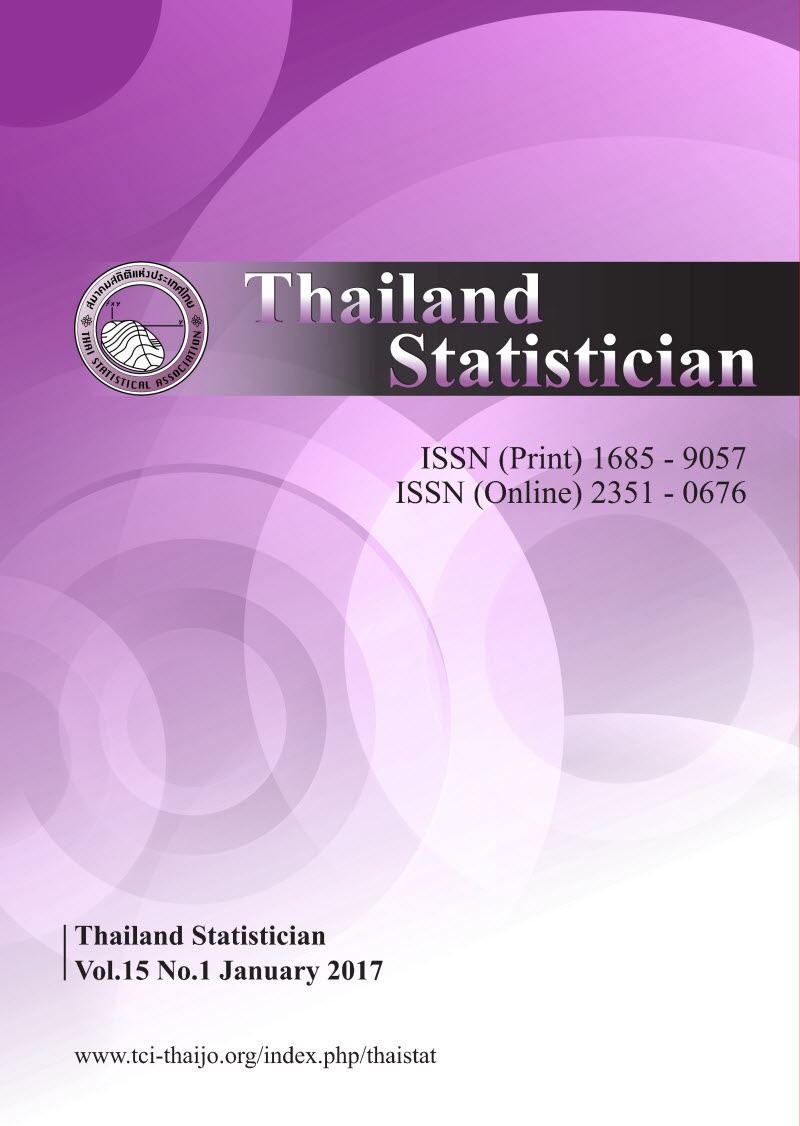Forecasting the Stock Exchange Rate of Thailand Index by Conditional Heteroscedastic Autoregressive Nonlinear Model with Autocorrelated Errors
Keywords:
autocorrelation, Bayesian inference, heteroscedasticity, penalized splineAbstract
The goal of this work is to develop a nonparametric regression model that not only account for possibly non-linear trend (i.e., conditional mean of the response variable) but also account for possibly non-linear conditional variance of response (i.e., heteroscedasticity) as a function of predictor variables in the presence of auto-correlated errors. The trend and the heteroscedasticity are modeled using a class of penalized spline. The residuals are modeled as a long autoregressive process which can approximate almost any autoregressive moving average (ARMA) process by selecting an appropriate number of lag residuals. Both classical and Bayesian methodologies are developed to obtain the smooth estimates of the conditional mean and variance functions. The resulting estimated residuals are then used to fit a possibly long AR process by suitably choosing the order of AR using the Akaike Information Criteria (AIC). The forecasting performance of the proposed methods is then applied to the series of monthly observations of the Stock Exchange Rate of Thailand (SERT) to illustrate the methodology. The forecasts these methods are compared with those obtained based on future six months of withheld observations.Downloads
How to Cite
Araveeporn, A., Ghosh, S. K., & Budsaba, K. (2015). Forecasting the Stock Exchange Rate of Thailand Index by Conditional Heteroscedastic Autoregressive Nonlinear Model with Autocorrelated Errors. Thailand Statistician, 8(2), 109–122. retrieved from https://ph02.tci-thaijo.org/index.php/thaistat/article/view/34279
Issue
Section
Articles




